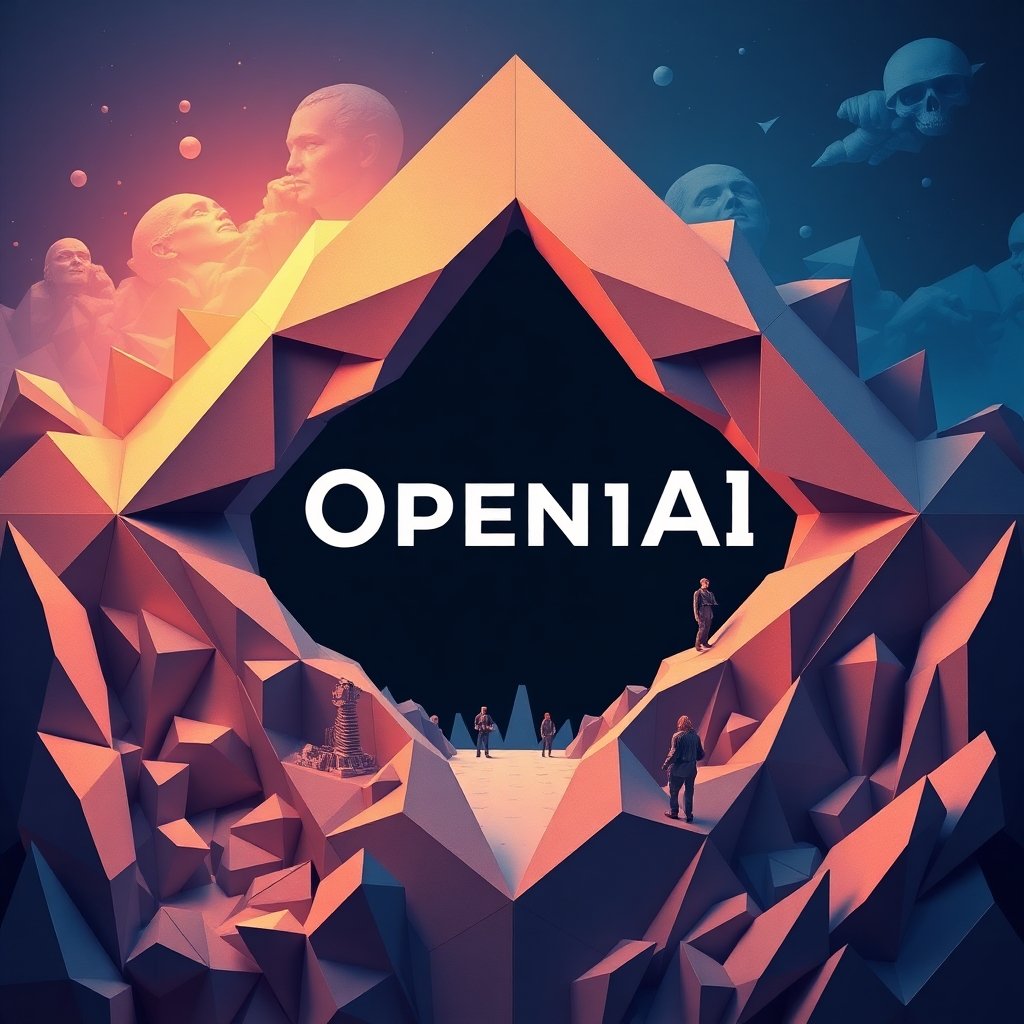OpenAI has revolutionized how businesses and individuals approach artificial intelligence, earning it the unique distinction of being the first company to secure the No. 1 spot on the CNBC Disruptor 50 list two years in a row. But what makes OpenAI so disruptive? More importantly, how has it maintained this momentum in a field as competitive as artificial intelligence?
This blog explores the innovative practices, groundbreaking technologies, and strategic decisions that have propelled OpenAI to this unprecedented achievement. By the end, you’ll have a clear understanding of why OpenAI is more than just a tech company; it’s a force that’s reshaping our world.
What Is the CNBC Disruptor 50 List?
Before we examine OpenAI’s achievements, let’s take a moment to understand the significance of the CNBC Disruptor 50 list. Every year, CNBC identifies and ranks 50 private businesses transforming their industries with innovative solutions. Companies on this list often tackle critical global challenges or redefine how industries operate.
Being featured on this list is already a badge of honor for any company. Topping the list for even a single year is a rare accomplishment—doing so two years in a row is almost unheard of until OpenAI made history.
Understanding OpenAI’s Disruptive Edge
Founded in 2015, OpenAI’s mission is “to ensure that artificial general intelligence benefits all of humanity.” While many tech companies focus on niche solutions, OpenAI aims to redefine what artificial intelligence (AI) is capable of on a global scale. Their approach is characterized by three key factors:
1. Breakthrough Products and Technology
OpenAI has consistently introduced AI products that have redefined industries:
- ChatGPT: The commercial success of ChatGPT made AI-powered natural language processing accessible to millions worldwide. Today, it’s used for everything from writing code to generating marketing copy.
- Codex: Codex translates human language into code, empowering developers and non-coders alike to create software faster and more intuitively.
- DALL·E: OpenAI’s text-to-image model, DALL·E, represents a leap forward in creative AI applications, turning user prompts into stunning visual content.
These technologies aren’t just innovative—they’ve changed the way businesses operate, create, and scale.
2. Commitment to Ethical AI
Unlike many tech companies that focus primarily on profit, OpenAI stands out for its commitment to ethical AI development. Its approach ensures that AI technology is designed and deployed responsibly. OpenAI has shaped public discourse on critical issues such as bias in AI, data privacy, and societal impacts.
By setting these ethical benchmarks, OpenAI has established itself as a trustworthy leader in AI, attracting both investors and partners eager to align with a progressive vision.
3. Accessibility and Scalability
One of the reasons OpenAI has scaled so effectively is its commitment to making cutting-edge AI accessible. Through partnerships and APIs, OpenAI has empowered developers, businesses, and individuals from all over the world to incorporate its tools into everyday workflows. This democratization of AI fuels its rapid adoption and positions OpenAI as a growth catalyst for businesses across industries.
Breaking Down OpenAI’s Success Across Industries
The beauty of OpenAI’s disruption lies in its applications across industries. Here’s a closer look at where OpenAI products are having the greatest impact:
1. Media and Content Creation
Gone are the days of labor-intensive content production processes. Using tools like ChatGPT and DALL·E, businesses are creating high-quality written and visual content in a fraction of the time. Freelancers, marketing teams, and media companies are leveraging these tools to generate ideas, optimize workflows, and engage audiences more effectively.
2. Education
By offering personalized learning resources, OpenAI is helping students and educators tackle challenges in innovative ways. For example, ChatGPT is widely used as a tutor to explain concepts in simple terms or as a teaching assistant for drafting lesson plans.
3. Healthcare
AI’s entry into healthcare has saved lives and improved outcomes. OpenAI-powered language models are used in medical research, diagnosis support, and administrative tasks, enabling healthcare professionals to focus more on patient care.
4. Software Development
Codex, OpenAI’s AI coding assistant, is transforming the way software is produced. By “speaking coding languages,” Codex cuts down development time and empowers non-technical teams, removing barriers to innovation.
5. Customer Service
ChatGPT’s conversational capabilities have revolutionized customer service. Brands can now offer instant, intelligent responses using AI-powered chatbots, reducing friction, improving customer satisfaction, and increasing efficiency.
The Road Ahead for OpenAI
With its innovative breakthroughs, commitment to ethics, and ability to impact multiple sectors, OpenAI’s achievements so far signal that it is only scratching the surface of its potential. The company recently announced partnerships with major corporations like Microsoft and plans to expand its product suite even further. These moves hint at a future where OpenAI continues to push boundaries and set benchmarks in AI.
Why OpenAI’s Leadership Matters
OpenAI doesn’t just lead the AI field—it shapes the way we think about technology’s role in society. By prioritizing ethical considerations while delivering innovation, OpenAI offers a roadmap for other technology companies on how to scale responsibly. Its influence extends beyond product adoption; it’s sparking conversations about how AI can promote equity, sustainability, and global progress.
A Final Thought
OpenAI’s ability to transform industries, deliver real-world solutions, and stay grounded in its ethical mission is why it earned its spot as the No. 1 Disruptor two years in a row. As businesses and individuals continue to adopt AI, OpenAI remains at the forefront, showing the world that technological advancement and social responsibility can go hand in hand.
Want to learn how AI-powered solutions like OpenAI’s tools can transform your industry? Stay ahead of the curve by exploring the latest AI tools available for businesses.

